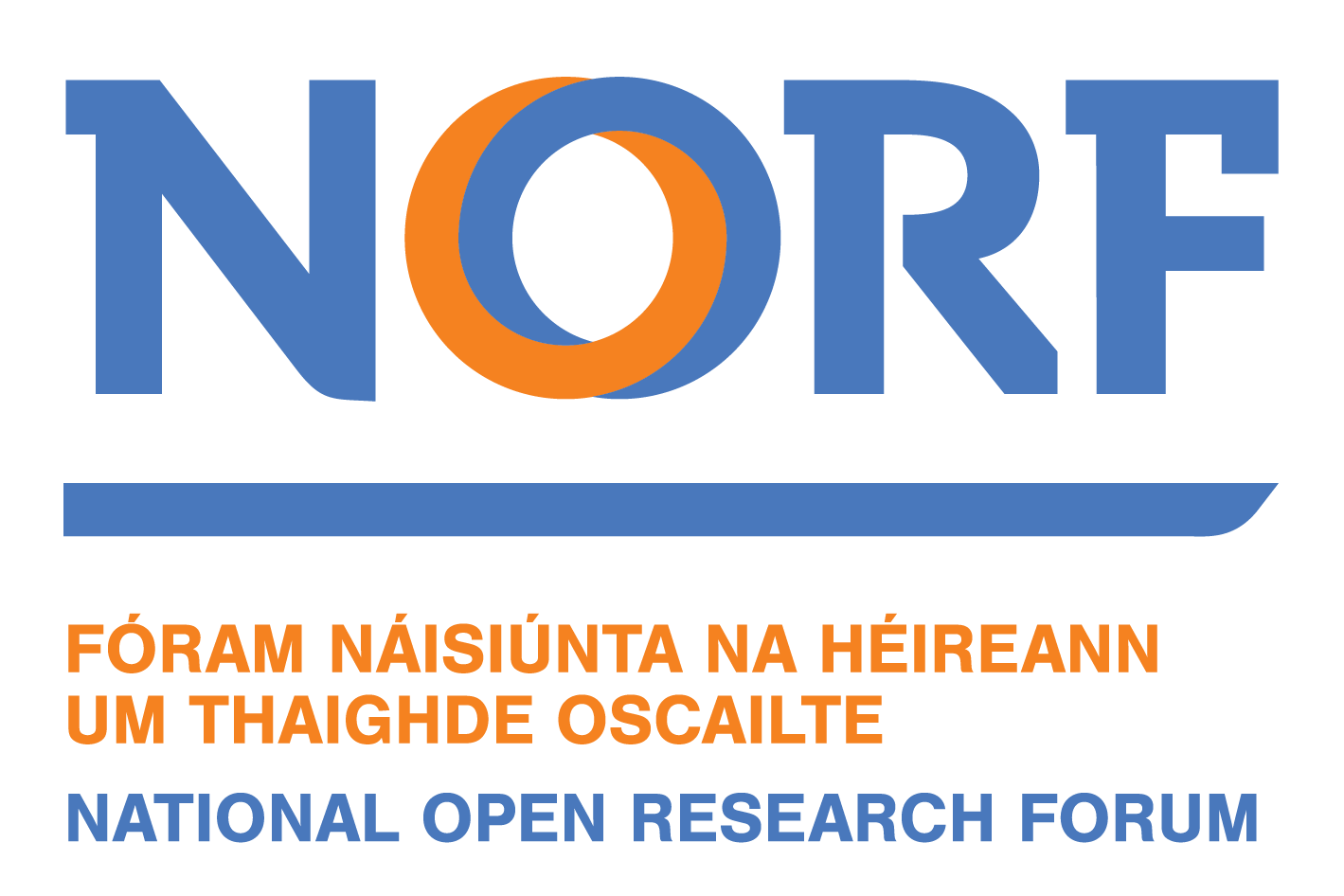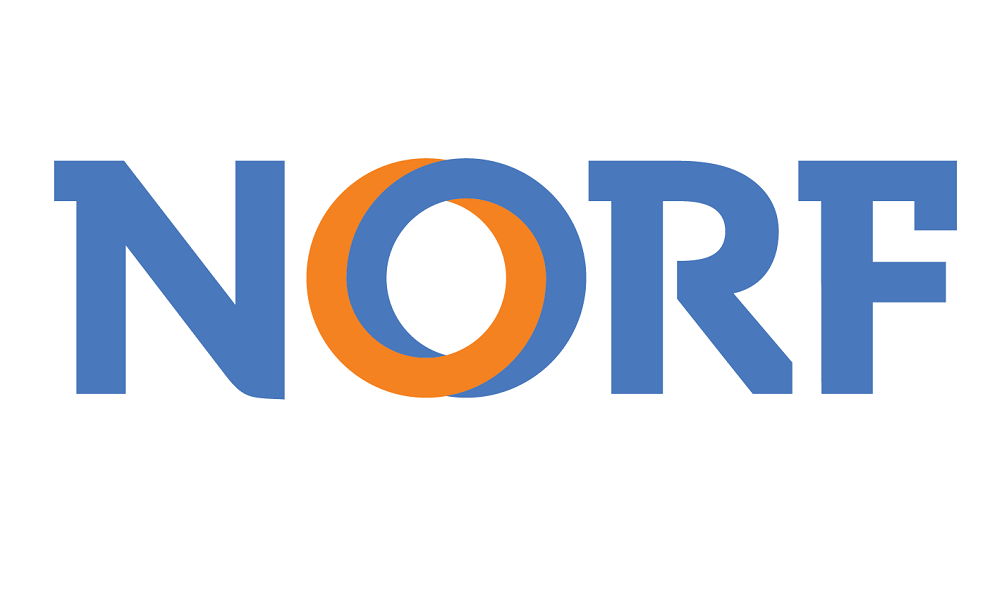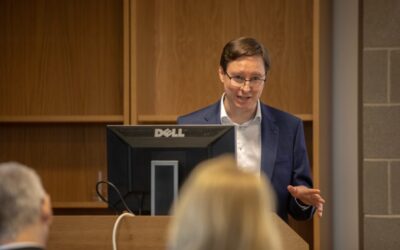by Dr Daniel Bangert, DRI (National Open Research Coordinator) and Dr Aoife Coffey, UCC (NORF FAIR Working Group Co-Chair)
In mid-July, Ireland’s National Open Research Forum (NORF), FAIRsFAIR and EOSC Synergy delivered a three-day workshop to support the development of data stewardship skills among staff in higher education institutions and other research performing organisations in Ireland.
The training was targeted at those within institutions who are engaged in providing support and training on research data management (RDM) and FAIR (findable, accessible, interoperable, and reusable) data. We were pleased to welcome 39 participants from a range of institutions across Ireland. In total, 28 Irish institutions were represented, including universities, institutes of technology or technological universities, government agencies, research funding organisations, and national research infrastructure providers.
Data stewardship skills as a national need
Data stewardship can be defined as the tasks and responsibilities that relate to the management, sharing, and preservation of research data throughout the research lifecycle and beyond. The need for these skills has been prompted by the data intensification of the research landscape, increasing requirements of funders and publishers for formally managed research data, mandates for FAIR and/or open data, grassroots movements from within disciplines in support of reproducibility and transparency of data practices, and legislative changes which have raised the standard for the treatment of data emanating from human-focused research.
The role of the Data Steward has therefore emerged as key human infrastructure to support and enable FAIR data and Open Research. While the requirements of the role can vary between institutions, Data Stewards often act as a bridge between researchers or research projects and policies, infrastructure, or central services. Their activities are not limited to the production or curation of FAIR data, but facilitate a broad range of research data management activities.
Although the demand for data stewardship expertise is high, a shortage of these skills has been identified in successive international reports. For example, the European Commission’s report on Turning FAIR into reality (2018) included two priority recommendations related to data stewardship: to professionalise data science and data stewardship roles and train researchers, and to implement curriculum frameworks and training for professional data roles. This has also been echoed at the national level in NORF’s National Open Research Landscape Report, which identified a need for professionalisation, coordination and community-building, and increased resourcing to build Ireland’s capacity in this area.
Workshop summary
Over the course of the three-day workshop, participants were introduced to the drivers for RDM, FAIR and Open Research and discussed how data stewardship supports these aims through training. Particular attention was paid to understanding the national context, the development of resources to meet needs within one’s own institution, and where data stewardship roles or services fit in with related roles and services such as IT services or research support. A course development activity gave an opportunity to consider how to develop and offer RDM and FAIR data training with reference to common pedagogical frameworks. RDM service maturity and continued development within institutions were also discussed, facilitated through the use of the Research Infrastructure Self-Evaluation (RISE) model. In breakout sessions, a series of Data Management Plan (DMP) case studies were reviewed, with discussion covering suggestions for DMP improvements and potential roadblocks to implementing the plans.
The final session included a discussion on takeaway messages and actions that participants could take to foster data stewardship at their institutions. Several participants stated that they now felt less alone and indicated a desire to work more collaboratively in the future at a national level. There was also a realisation that core to the sustainable development of RDM services is buy-in across related services within institutions and that RDM and FAIR data support is not the sole domain of libraries. Many highlighted that there remain significant gaps in the knowledge, awareness and skills of the research community. Feedback also advocated the need for the support of senior management within institutions, who may not be fully aware of the implications of evolving funder and publisher requirements with regard to RDM, FAIR, and the need for Data Stewards to provide key expertise.
As a first step towards a nationally coordinated approach to building capacity and a community of Data Stewards, the idea of a data stewardship network was put to the participants of the workshop. The suggestion was warmly welcomed, particularly as many of those currently supporting RDM and FAIR within Irish HEIs or RPOs are working independently or in a small team. Immediate feedback included a number of potential actions and activities that such a network could support, such as peer learning, development of shared training materials, advocacy for RDM and FAIR at a national level, and joint events for awareness-raising and training for data professionals and researchers. While the network has yet to formally coalesce, participants were encouraged to sign up to an existing RDM mailing list, opening a channel of communication for those providing data stewardship advice and training around Ireland.
Participant feedback
What was your motivation for attending the workshop?
My main motivation is that I work in Data Science at ICHEC, and unlike most of my colleagues, have generally been more concerned about the data than computational requirements. However, with the advances in technology, particularly AI models, high-end computation is getting more and more data-centric, and we have started hosting large datasets ourselves. We also expect that this activity is going to grow over time, meaning that we will need to provide some form of data stewardship. In addition, we expect that some academic/research partners might rely on us to manage a project’s data products in compliance with EU funding requirements. This is why the workshop was so timely for me, as I will likely be expected to be the one providing the guidance. With both personal and professional interest in data ethics (I develop AI models for a living), I am interested in the promotion of FAIR and Open Data, which the workshop discussed.
To improve my data stewardship knowledge, share experience and participate in the small but growing community of Data Stewards in Ireland.
I attended the workshop because of the speakers, content and relevance to my role of providing RDM support. I was also interested to meet fellow participants who work in similar roles in Ireland.
To improve my FAIR data stewardship and the service I offer to researchers, with the ultimate overarching aim of normalising FAIR research data.
What was your key takeaway from the workshop?
There is a critical lack of formal data stewardship services. I have seen it first-hand in the project I have been involved with, but the case studies highlighted to me that this was an even more general problem than I assumed. Even if full-time stewards are unlikely to happen in the near future, training and part-time stewardship would go a long way to help our research community in publishing/maintaining their data products, which are fast becoming an alternative to papers as an expected research output.
We need lots more events like this if support for Irish research is to keep up with international developments in the area of Data Stewardship.
There is a great RDM support network evolving in Ireland and we can all learn from and support each other.
That those involved in all areas of FAIR data stewardship, training and proliferation have similar questions on how we can do it better, what resources are available and how we can standardise tools and requirements to measure our level of success. Also that there is a desire to have a community of practice in the area of stewardship so that we can guide and learn from each other’s scenarios and practice.
Thank you to the following participants who provided the feedback above:
- Dr Bruno Voisin, Senior Data Scientist, Irish Centre for High-end Computing
- Peter Corrigan, Head of Digital Publishing and Innovation, James Hardiman Library, National University of Ireland Galway
- Trish Finnan, Digital Publishing and Data Management Librarian, James Hardiman Library, National University of Ireland Galway
- Therese Ahern, Metadata and Research Data Librarian, MTU Library, Munster Technological University
Resources and further reading
- Workshop programme and learning materials on the FAIR Data Forum
- A focus on… the emerging role of ‘Data Steward’ in Ireland, blog by Deborah Thorpe, DRI
- Research Data Stewardship in UCC, follow-up activity at UCC to understand institutional data stewardship activities
- Research Data Alliance Interest Group on Professionalising Data Stewardship
- Turning FAIR into reality (2018), Final report and action plan from the European Commission expert group on FAIR data
- Building digital workforce capacity and skills for data-intensive science (2020), OECD Science, Technology and Innovation Policy Paper



